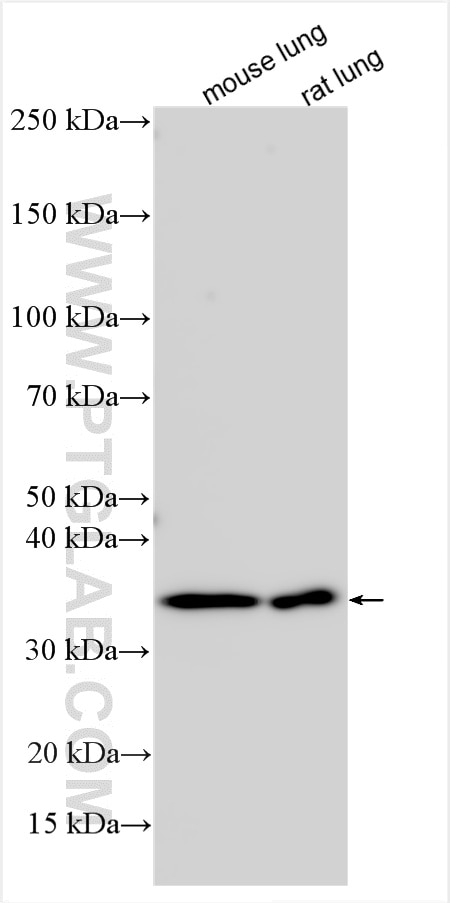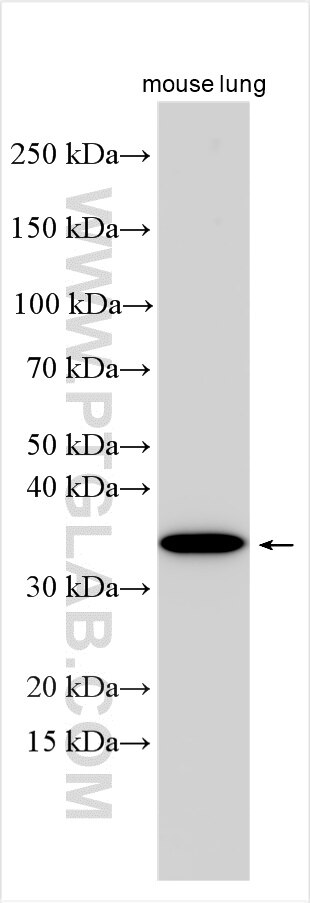SULT1C4 Polyklonaler Antikörper
SULT1C4 Polyklonal Antikörper für WB, ELISA
Wirt / Isotyp
Kaninchen / IgG
Getestete Reaktivität
human
Anwendung
WB, ELISA
Konjugation
Unkonjugiert
Kat-Nr. : 14300-1-AP
Synonyme
Geprüfte Anwendungen
| Erfolgreiche Detektion in WB | Mauslungengewebe, Rattenlungengewebe |
Empfohlene Verdünnung
| Anwendung | Verdünnung |
|---|---|
| Western Blot (WB) | WB : 1:500-1:2000 |
| It is recommended that this reagent should be titrated in each testing system to obtain optimal results. | |
| Sample-dependent, check data in validation data gallery | |
Produktinformation
14300-1-AP bindet in WB, ELISA SULT1C4 und zeigt Reaktivität mit human
| Getestete Reaktivität | human |
| Wirt / Isotyp | Kaninchen / IgG |
| Klonalität | Polyklonal |
| Typ | Antikörper |
| Immunogen | SULT1C4 fusion protein Ag5259 |
| Vollständiger Name | sulfotransferase family, cytosolic, 1C, member 4 |
| Berechnetes Molekulargewicht | 36 kDa |
| Beobachtetes Molekulargewicht | 35 kDa |
| GenBank-Zugangsnummer | BC058861 |
| Gene symbol | SULT1C4 |
| Gene ID (NCBI) | 27233 |
| Konjugation | Unkonjugiert |
| Form | Liquid |
| Reinigungsmethode | Antigen-Affinitätsreinigung |
| Lagerungspuffer | PBS with 0.02% sodium azide and 50% glycerol |
| Lagerungsbedingungen | Bei -20°C lagern. Nach dem Versand ein Jahr lang stabil Aliquotieren ist bei -20oC Lagerung nicht notwendig. 20ul Größen enthalten 0,1% BSA. |
Hintergrundinformationen
SULT1C4 (Sulfotransferase 1C4), a member of a gene subfamily that includes three human members, SULT1C2, 1C3, and 1C4, is a dimeric Phase II drug-metabolizing enzyme primarily expressed in the developing fetus. SULT1C4 transcript is expressed in human intestinal and hepatic cell lines as well as in human liver specimens from different developmental stages, while SULT1C4 protein is barely detectable (PMID: 28222028, 32303576).
Protokolle
| PRODUKTSPEZIFISCHE PROTOKOLLE | |
|---|---|
| WB protocol for SULT1C4 antibody 14300-1-AP | Protokoll herunterladen |
| STANDARD-PROTOKOLLE | |
|---|---|
| Klicken Sie hier, um unsere Standardprotokolle anzuzeigen |



